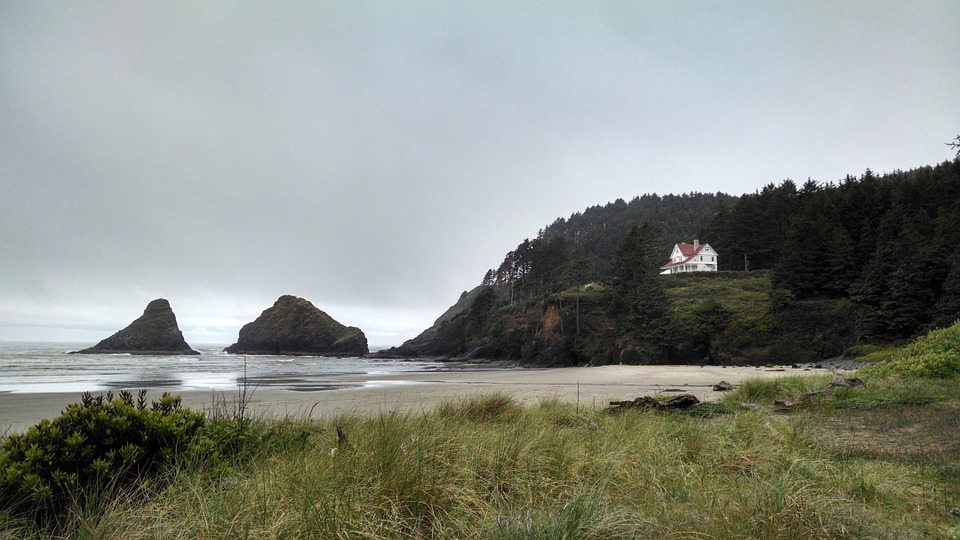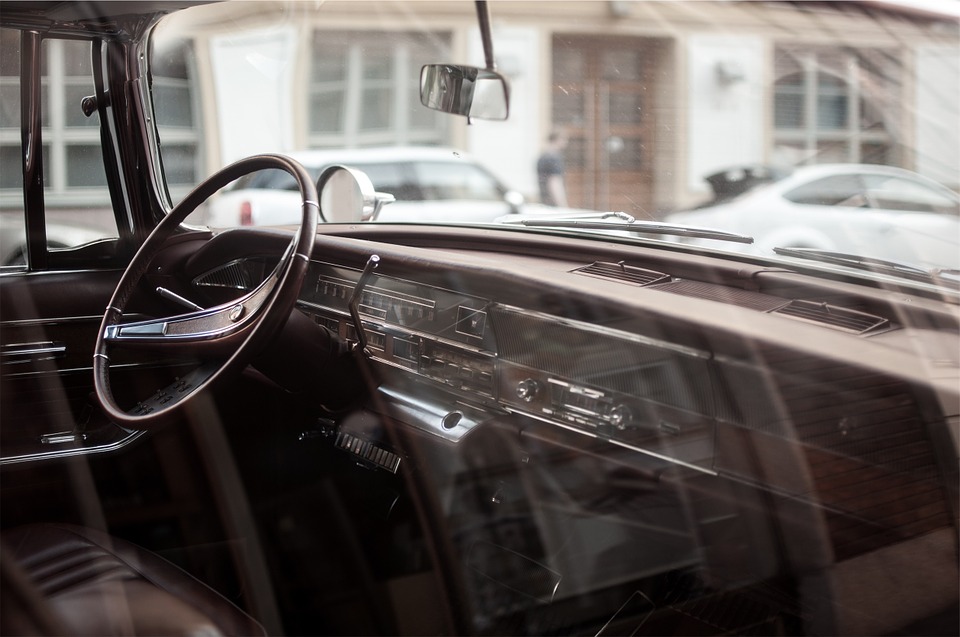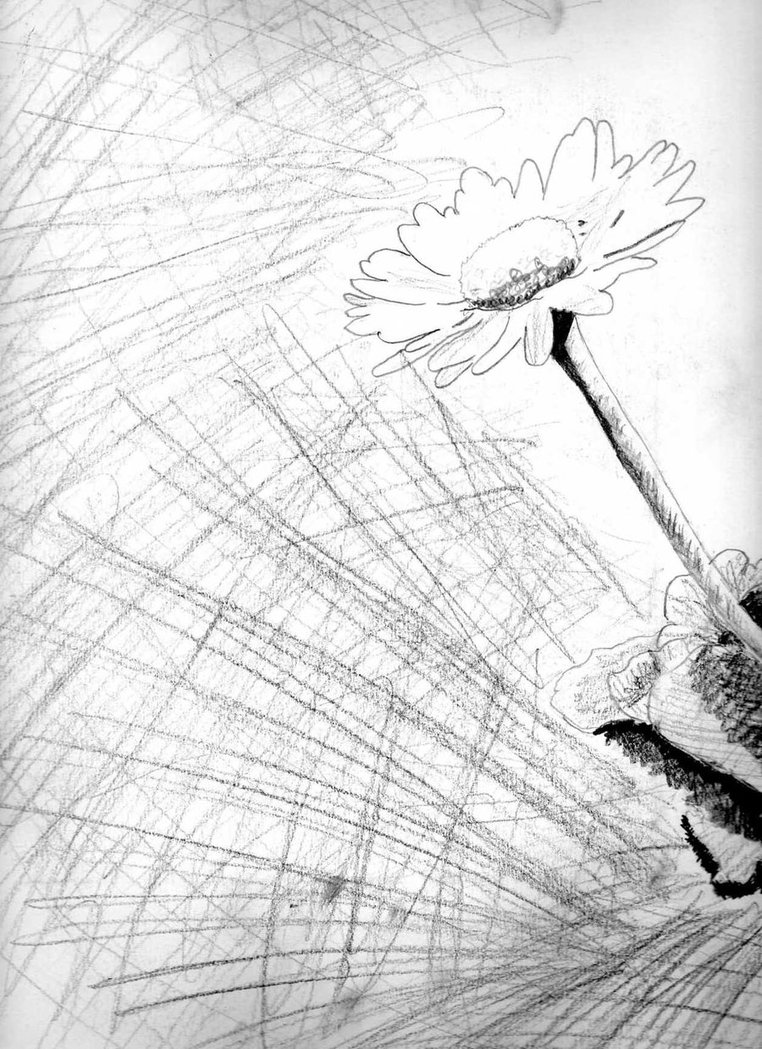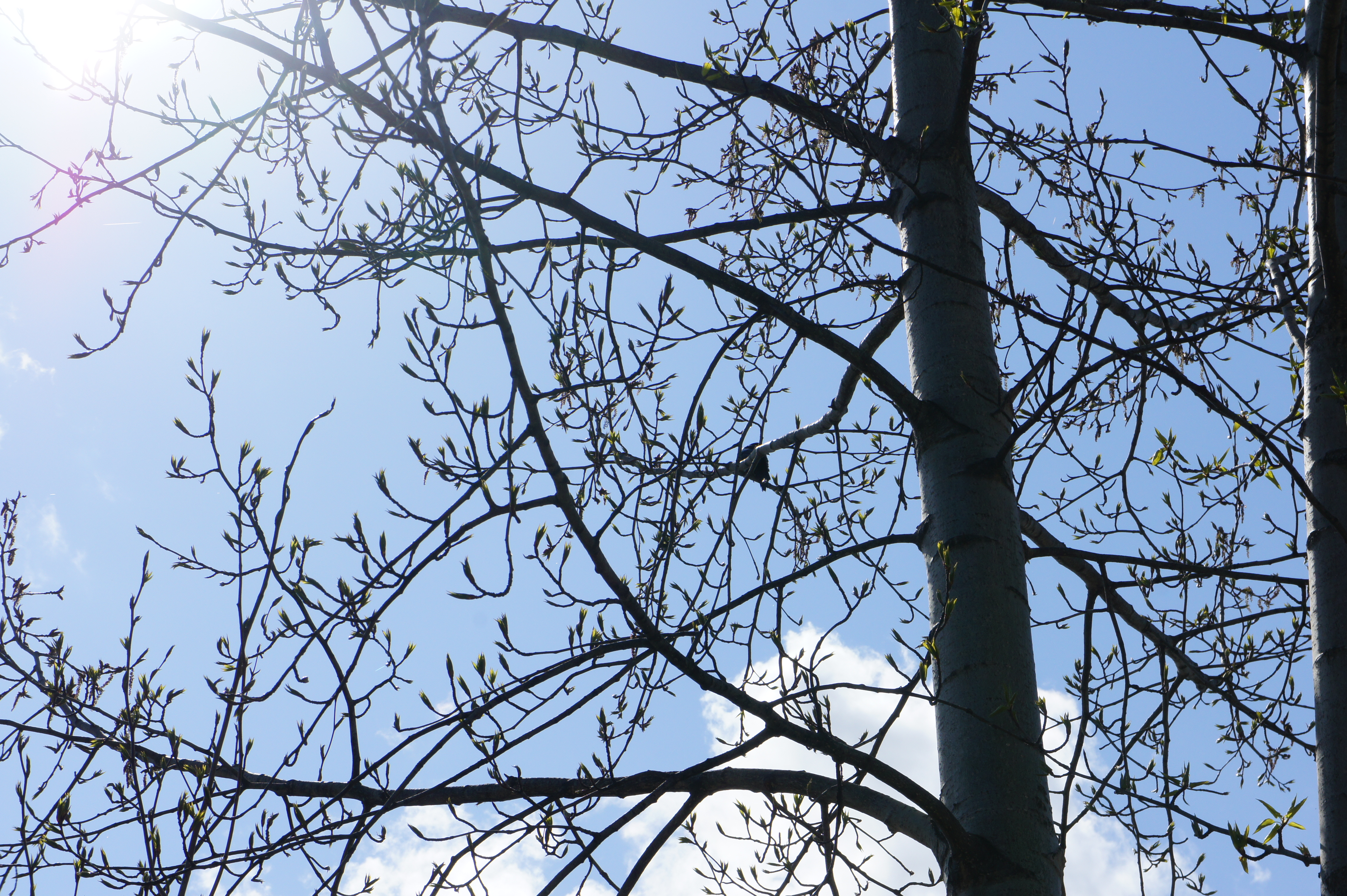by L. J. P. T. Krallek
They had called it a house of hope when they first came. There were young still, and after the dark storms of war, life seemed to hold new promise once more – despite the scars sustained by both from the days of fear and fighting.
His scars were easier to name – the bullet wound in his leg, the loss of his tear-ducts in Africa, the horrors that woke him screaming in the dark stillness of the night until he cursed dreaming and hated sleep and turned to whiskey to deaden his memory and render nights calm and without terror. It was harder for her; everyone forgot what the war had done to her, had taken from her. She had been safe after all, far from battles, working in a factory where she built the control panels for the bomber planes, spending her nights knitting her bit and weekends organizing scrap metal collections and USO shows. No one ever mentioned her first husband – they had married on 1 December 1940 – who had died in the first major land offensive of ’41, or her later fiancé who went MIA in the Bulge and whose body was never recovered. Her family dealt with the grief of her three lost brothers (’42, ’44, and ’45) by silence, and by cosseting the fourth when he returned maimed and half-blind in the final months of ’45.
. . .
“Are you sure this is a good idea, Susanna? You really want to do this?”
“What do you mean, a good idea?” She fished an old set of keys out of her satchel and began trying the lock with each of them. “I wouldn’t have made you come all this way with me if I didn’t plan on doing anything. I thought you wanted to see the place too.”
“I do, but it just feels off. It feels like we’re grave-robbing or breaking and entering or just, you know, not supposed to be here.”
“You’re so sweet, Colin, but you’re also an idiot. I have keys to the house, so we’re not breaking anything. It’s not trespassing because Nana and Poppa left it to me, so it’s mine. And no one is buried here, so what’s grave-robbing about it?” She finally found the key that fit the lock, though it was rusty and swollen with sea air and the key squealed and rasped as she tried to turn it.
“I feel like it’s just so peaceful, like we shouldn’t disturb anything. It’s kind of creepy.”
“You’ve clearly watched too many Indiana Jones movies,” she laughed. He jammed his hands in his pockets and grimaced. The lock popped and she smiled victoriously, but the door remained shut fast. “Damn.” She threw herself at the door but it showed no signs of letting her have her way.
“How long has this place been boarded up anyways?” He fingered the weathered house numbers to the left of the door, the paint chipping away at his touch. “Why the hell did they leave it? It must have been fabulous back in the day. Less than two minutes to the shore.”
“A long time, since my mom was a kid anyhow. I never really understood why they stopped coming either; we can ask Duke later if you want. I guess this is probably the first time anyone’s tried to open this door since 1965 or so. I swear you are a golden age idealist.”
“It’s why you love me.” He leaned down to kiss her forehead but she moved away.
“Oh shut up, stupid-face. Come on, help me and give it a shove.”
. . .
Fenario.
A name that sounded just like a song, just like a dream of beautiful things and unmarred happiness. To name a thing is to know and love a thing, her mother had once told her.
A new house, just built for them with enough room for the family that they now dared to dream for, seemed to speak of the brave new era of post-war America. He had a job with the newspaper that paid their bills, and she began church organizations and directed political campaigns and baked chocolate cakes. She had never liked chocolate, and they shared an indifference towards cake, but this was a new time of plenty and it made the neighbors feel like they were being friendly and it made her feel like the past wasn’t going to catch up with her again and take the joy away from their new house with their new friends and their new life.
. . .
He rubbed his arm thoughtfully. “I think you dislocated my little finger.”
“Yeah, well, I think I broke my tailbone. That door is in need of some serious repairs.” She picked herself off the dusty welcome mat, long faded and well worn. “But hey, we’re in. Welcome to Fenario.”
“Welcome to dust and sinus congestion.”
“There are vacuums and mops. And breathing masks from Hal, in case; she brought them from the hospital. We can look like we’re warding off a serious public health threat, of dust-borne pathogens. What do you want for a place that no one’s been in for almost fifty years?”
He grinned. “No ghosts. No skeletons in the closet. No bad stairs and broken ankles.”
“You want too much, Colin. It’s flying in the face of God, as Nana would have said.” She shook her finger at him and spun around, swirling the dust and grime of a half-century on the floor beneath her feet. “I’ll get back to you on the stairs; I’ll go first since I’m not a scared little girl with fragile feet and fingers.”
“What about the ghosts and skeletons?” He peered into a tarnished silver picture frame with the photo obscured and he wiped it with a single stroke, exposing the faces of a man in a Navy uniform and a woman in an old-fashioned wedding dress.
. . .
Then came the children they’d hoped for, the children the house welcomed, firmly banishing the last decade and bringing in the new one – the one that came as the fulfillment nation-wide of all the American Dream had promised for the past two decades. First came June, on the first day of the new decade and the three year mark of moving into their haven of hope. Then came Everett, then Susanna Alice, followed by Byron, and Lynette, and Roselyn.
The house was happy, bright, and always filled with songs and smells of Sunday roasts and blueberry pie. War. Pain. Grief. These had no place anywhere and she daily banished them with her rosary and swept them out with a brisk broom, silencing their voices with Hammerstein show-tunes and the laughter of her children. If ever fear entered her heart, she never gave it her voice. But in the dark, when all the rest of them slept and her husband lie beside her, passed out with alcohol on his breath, she would whisper to the night breezes of her hope for joy and her worry that this life could never last. But peace and comfort held on to its’ grip on their little home, safe from even the dark fears of a mother’s heart.
. . .
“Come look at this!” She beckoned to him, and he bent around the corner.
“You are going to freak out over this kitchen. I think everything will still work.”
“Seriously? Perfect. We can have Duke take a look at it just to make sure. No blowing us or the house up, right? But look at this.” She pointed to a tall bookcase with glass doors.
“Books. You come by your obsessions genetically.”
She fixed him with an expression of loving exasperation. “It’s my grandmother’s record player. And here’s her statue of St. Brigid of Ireland- it’s the reason she named the place Fenario in the first place.”
He opened the case and showered dust and lint on her jacket, which she wiped off with a great show of intentional poise. “I didn’t know Brigid had anything to do with Fenario. I thought there was just some old song about a place called Fenario where a bunch of people died.”
“Yeah, she loved the song. Anyways, the statue was her mother’s originally, and her mom brought it from Fenario when she came to the States back in 1912. Mom said Nana used to say her rosary at dawn each day, kneeling in front of Brigid.” She touched the statue reverently. “She said that the Brigid watched over her babies and kept them safe.”
“I thought she lost her last baby.”
She shut the door a little too sharply and turned just a little to abruptly for him to see that he’d hit on a wound in her family, the wound no one ever talked about. “He was stillborn. Maybe that’s why she left Brigid here.”
. . .
The century then headed into its second half and her worries came less and less on the sea breezes and the ocean murmured comfort and serenity to her. But she could never bring herself to trust the ocean or the security of the house where hope had made her a home with her new family.
Work caused their family to move in that new decade, away from the quiet life in Fenario overlooking the sea – her husband had been promoted to a larger newspaper and they now wintered in the city, where the children went to private school and learned Latin until summer returned and they would pack up for the holidays and spend the hottest months in the house where happiness sighed on ocean winds and the waves crashed on the nearby shore until they could no longer hear them.
Five years passed this way, and summer came, and the children packed the car themselves in preparation for the return to Fenario; Roselyn and Lynette whispered about the baby who would come at summer’s end – the baby that would be born just like them at the house by the sea. The doctors had told her she must stay inside and rest, that her body was too old to be active if she wanted this child to be born healthy and strong as all her other children had been.
From the moment they arrived, the three youngest could not be made to leave the shore – their hair ravaged by the salt water and their bodies buffeted and caressed in the foaming tides. June, finding herself in the awkward awakening body of a young woman, spent her days in at the soda shop or wandering past window displays of dresses and shoes that would show her new figure off if her parents had given her the spending money she now knew she needed if life was to be worth living any longer. Duke, who had shucked off the pretentious sounding name of Everett by the time he could ride a bicycle, preferred lounging in the shade and reading books and scheming of ways he’d become rich one day – he liked to dream about owning a boat and sailing down the coast and bringing things back from the islands south of Florida that you couldn’t normally get in the States. It made him feel like he could be a daring rogue who wouldn’t ever have to listen to what anyone told him to do once he just got old enough. So it was Susanna Alice who had to stay by the shore and watch the children. She would have sooner stayed in the bright and sunny kitchen and filled it with the songs her mother had taught her to sing while she baked pies and turnovers until the state of New Jersey was out of butter and flour, she never complained about the hours spent by the ocean, despite the trouble her little sisters especially enjoyed giving her. She sang to the shore and laughed with the gulls and gave warmth to the sun on windy days.
. . .
“This house,” she smiled contentedly, enraptured with the view from the upstairs bay window. “It’s like a time capsule. Even museums don’t get the same feeling. It’s perfect here.”
“Museums weren’t ever lived in, unless it was a long time ago. And those kind have been restored to look like this. This stuff…” he scratched his chin. “This was just left here. Completely abandoned. Like they meant to come back and just never did.”
She slipped her arm around his waist and leaned against his shoulder. “Maybe they just couldn’t.”
He kissed her hair and looked down the hall past her. “So, what do you expect to find up here? You haven’t seen the kitchen and dining room yet. I bet you’ll have pies in that oven by tomorrow morning. Just like your grandmother taught you to make.”
“My mom said the bedrooms were up here. Duke and Byron shared, and she and Aunt Rosie had the littlest one. I guess that leaves the bathroom here, and these other two must have been Nana and Poppa’s, and Aunt June’s.”
“Ah,” he smiled. “The aunt who is dead to everyone else. The witch most evil.”
She giggled and pushed away. “She wasn’t awful as a kid. Her psycho-bitch days came later. Come on. I want to see what my mom left behind when she was seven. I bet Duke had pirate posters and Captain America action figures.”
He followed after her, his fingers entwined with hers and she pushed open the first door. The room was entirely mint-hued – furnishings and walls alike – and the table beside the door had a lace runner on which an antique black rotary telephone, a leather-bound Bible, and a half dozen picture frames sat; each photo showing six childish faces preserved in aged sepia, each one sharing the same grin falling towards the left side of their face.
“I thought there was just the five kids,” he picked up the last frame. “You’re bad at counting. Or your mom is.”
She took the photo from him and studied it. “Only five that I’ve ever heard about.”
. . .
Why was there screaming? The children might shriek in the waves, but screaming wasn’t like them. She shifted uncomfortably in her wicker chair on the porch. Summer heat and late term pregnancy were not good companions.
When she saw Duke running, his arms wind-milling through the air, his mouth wide open, she knew something had gone wrong. Down on the shore, by the ocean that had murmured comfort to her for nearly twenty years. He was the quiet kid, the dreamer. Half the time, they couldn’t get him to speak up at the dinner table and he’d miserably eat his food without salt rather than have to ask someone for it. She stood, trembling and began walking towards him as quickly as she could manage. He stopped a few feet from her, quivering, and pointed to four figures huddled on the edge of the surf.
Four. Susanna Alice hated being in the water. She didn’t even like taking baths if she could avoid them. She could hear the wail of Roselyn over the sea, and saw Byron holding her back from the waves. Despite herself, she ran. Her stomach clenched with each step and she felt the shifting in her belly and worried for a moment about the baby due any day. Don’t come now.
Lynette had been dragged into the sand, coughing and writhing, her hair bedraggled with seaweed and sand. Susanna Alice was lying facedown in the break, still half in the water, soaked and motionless.
She never knew if she screamed or not. She couldn’t remember crying, or what the other children had done when she got there. Somehow, Duke got Lynette back to the house, and kept her breathing, still shaking. Someone called for her husband. Someone took the younger children away, after the doctor came and before the birth of her stillborn son. She couldn’t hear anything but the roar of the cold, deep blue sea, and the silence of her warm-hearted and song-filled daughter. Her daughter, turned blue and cold by the ocean that had lied when she had listened to it from the house that had promised hope and healing.
. . .
“Look at this newspaper,” he said as she continued rummaging through the drawers of the bedside dressers. “It’s from the first week of August ’65.”
“What about it?” she rocked back on her heels and gazed up at him. “That’s when John Paul was born. Or wasn’t, I guess. Should have been born.”
“It’s about your family.” He handed it to her.
She looked at a photo of a smiling pre-teen girl, barefoot and holding a pie like a shy peace offering to the unknown photographer. “Local Girl Drowns Saving Younger Sister,” she read aloud. “While swimming on Friday morning, Lynette Keogh was caught in a swift out-bound current that was dragging her out to sea. Her elder sister rescued her from the undertow but did not survive…” Her voice trailed off. “My mom. They didn’t come back because…”
“The girl’s name.” He looked at her. “Look at her sister’s name.”
“Susanna Alice. My name. Like the name of a promise to never forget.” She whispered to the black and white picture. “I found you. I’ve come home.”
[divider]
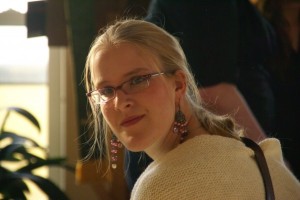 L. J. P. T. Krallek was raised in Sterling on the Kenai Peninsula. She writes mostly fiction, with a special interest in fantasy in the style of Tolkien, Lewis, and McKillip. Outside of writing, she also enjoys reading, drinking tea, listening to classical and folk music, and spending time walking through woods, bookstores, and antique shops.
L. J. P. T. Krallek was raised in Sterling on the Kenai Peninsula. She writes mostly fiction, with a special interest in fantasy in the style of Tolkien, Lewis, and McKillip. Outside of writing, she also enjoys reading, drinking tea, listening to classical and folk music, and spending time walking through woods, bookstores, and antique shops.
